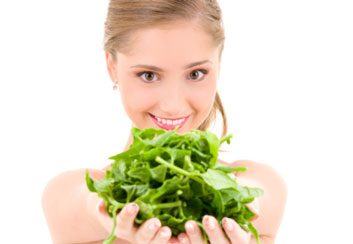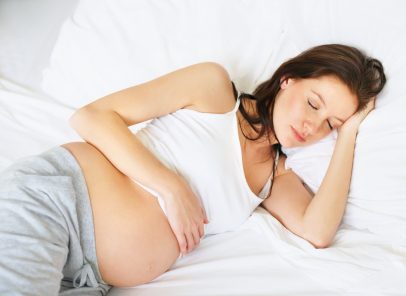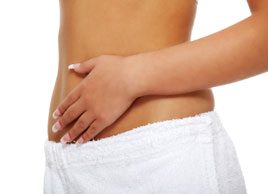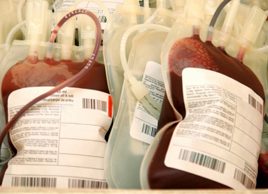
Are you getting enough iron?
“Probably 20 percent of menstruating North American women are deficient in iron,” notes Dr. William Ehman, an assistant professor in the faculty of medicine at the University of British Columbia, and a family physician in Nanaimo, B.C., who regularly sees iron-deficient women in his practice. “The biggest misconception is that iron deficiency is always related to a poor diet, when the reality is, most women need to work to keep their iron levels up.” For example, if you menstruate heavily, your doctor might recommend birth control such as the pill or an IUD to lessen overall menstrual bleeding. Read on to discover some other common causes of iron deficiency:

If you’re pregnant
“During pregnancy, your body needs more iron, but it’s hard to meet your increased needs through diet alone,” notes Dr. Nan Schuurmans, an Edmonton obstetrician and co-author of the book Healthy Beginnings. Your healthcare provider may prescribe an iron supplement that you will need to take along with your prenatal vitamins.

If you’re vegetarian or vegan
As for vegetarians, because they do not eat meat (which is rich in iron), Dietitians of Canada recommends that they eat greater amounts of iron-containing fruit, vegetables, grains, nuts and beans in order to get adequate amounts of the nutrient. (See below to find out how much you need.) “However, vegetarians who make proper food choices don’t have a higher incidence of iron deficiency compared to non-vegetarians,” says Vesanto Melina, a registered dietitian in Langley, B.C., who specializes in vegetarian and vegan nutrition, and is co-author of a joint position paper on vegetarian diets from the Dietitians of Canada and the American Dietetic Association.
How much iron do you need?
Women age 19-50*: 18 mg/day
Women 51+ (and men 19+)*: 8 mg/day
Pregnant women 19+*: 27 mg/day
Breastfeeding women 19+*: 9 mg/day
*Vegetarians need to get almost twice the daily recommended amount of iron compared to non-vegetarians because the non-heme iron they consume isn’t absorbed as well by the body.

If you have poor iron absorption
Poor iron absorption could be due to not eating enough iron-rich foods, or eating foods that can hinder the way your body absorbs this essential mineral. “Because iron is absorbed in the gut, faulty absorption could also be due to a digestive issue such as untreated celiac disease or colitis,” says Ehman. A 2010 study published in the International Journal for Vitamin and Nutrition Research suggested that people who are obese may not be able to absorb iron well. And absorption can be blocked for those taking large amounts of antacids such as ranitidine, or a proton-pump inhibitor (PPI) medication such as omeprazole or esomeprazole.

If you’re doing vigorous workouts
If you are training extra-hard-for a half-marathon, for example- “you can lose small amounts of iron through sweat and urine,” explains Alex Paton, a Winnipeg registered dietitian who specializes in sport nutrition. Running can also cause minor GI bleeds (that the runner may not even notice) simply because the body is being jostled and shaken, she adds.
Another factor is foot strike-literally, red blood cells bursting in the feet when they hit the ground. (You might experience foot pain or extreme fatigue if this is the case.) “Running shoes with firm insoles decrease the amount of blood loss through foot strike,” notes Kamal Janakiraman, a researcher and physiotherapist who co-authored a 2011 study in Sports Medicine, Arthroscopy, Rehabilitation, Therapy & Technology.

If you give blood
Canada Blood Services screens donors for low iron levels and turns down anyone whose levels are below a certain amount. Blood donation causes a temporary drop in hemoglobin, but your body makes new red blood cells to replace those lost. It’s a good idea to eat iron-rich foods for a few days after donation, and space out your donations if your levels are in the low-normal range.
Related:
• 5 things you need to know about iron
• 5 surprising facts about iron deficiency
• 6 reasons to eat more beans and lentils
